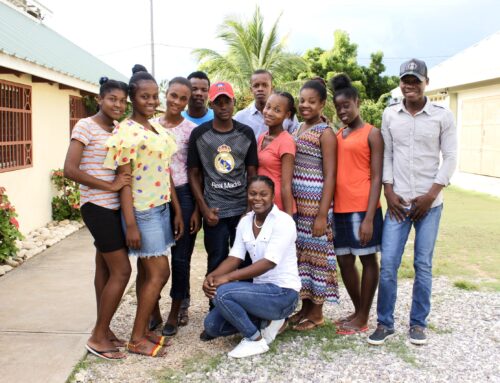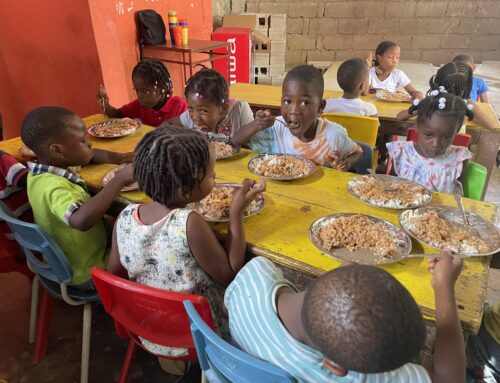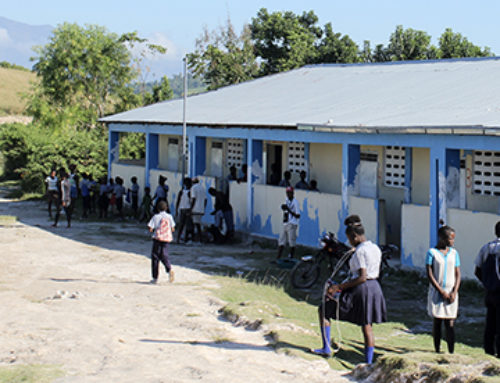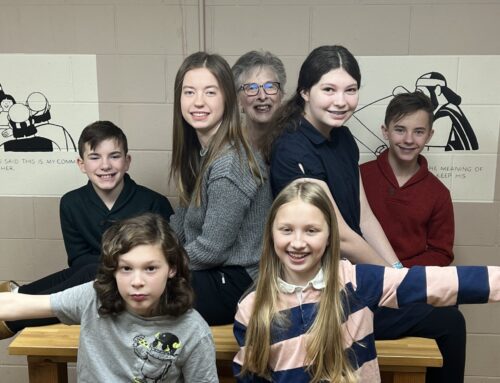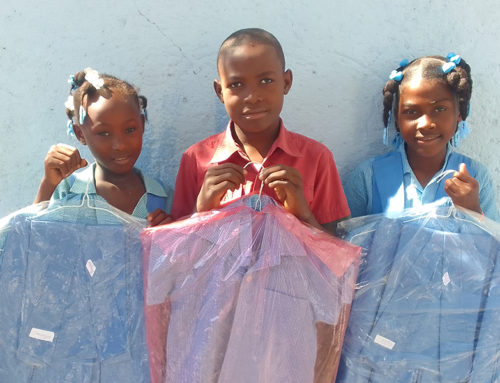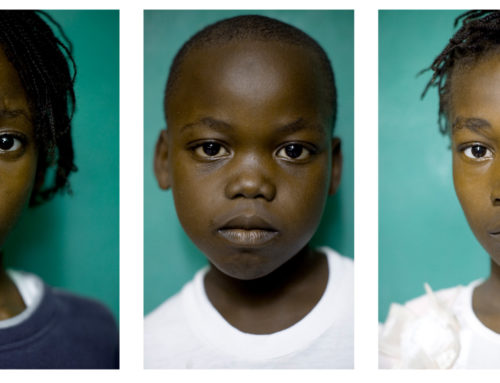
“Without school, you cannot do anything. I would like to go to university after this and study more. This program is very good to me.”
After Roseline’s* mother died, her teenage sister tried to care for her. But when a stranger, who seemed touched by their plight, offered to take in Roseline, there didn’t seem to be an alternative. Instead of finding a home, Roseline instead found herself doing all the labor around the house and caring for the family’s new baby. She never went to school.
Haitian families are daily faced with difficult choices that derive from a need to survive. Sometimes, these decisions result in giving up a child to live in restavek, a form of modern-day slavery in Haiti that affects roughly 300,000 children nationwide. Families and caregivers like Roseline’s sister often surrender children because they genuinely believe a life in restavek is better than a life in poverty. These children are then placed in homes with families and are solely valued for their labor. They aren’t given the opportunity to go to school. In fact, these children aren’t given the opportunity to be kids at all.
One factor is that unlike the education system in the United States, public school in Haiti is not free. It comes with a high cost and a long list of expenses—admission fees, monthly dues, fabric for uniforms and a seamstress to tailor them, new shoes, books, supplies, backpacks, etc. It goes on. And in a struggling economy, many parents, caregivers, and host families (those who hold children in restavek) are unable to meet these pressing financial demands. As a result, 80% of children like Roseline never make it to sixth grade.
Teased by other children for her ignorance, Roseline would ask for someone to take her to school so she could see what school was like. At night she would pray to God she could one day attend school like other children. She became depressed, isolated, and hopeless.
Restavek Freedom recognized this growing issue for thousands of children like Roseline. With the help of our generous sponsors, we have supported the education of more than 2,000 children in Port-au-Prince who live in restavek or are at a high risk of being sent into restavek. For the first time, these children were not just seen as servants, but as students, as classmates and as kids with friends. Through our Child Advocacy Program, they received a social worker who valued them for who they are. Suddenly, these children felt worthy and empowered when they sat on a classroom bench, dressed in a beautiful school uniform, addressed by their names, just like the rest of their peers. When we witnessed the success of the program in the capital city, we knew we wanted to expand it to other parts of Haiti.
Surprisingly, our data revealed that a large percentage of the children in our Port-au-Prince Child Advocacy Program living in restavek were sent from southern Haiti. We realized we needed to confront the problem at its source, so with the help of donors like you, we launched a second Child Advocacy Program in the coastal city of Les Cayes and the nearby rural community of Port Salut. In the first year, we were able to place 105 children into 24 different local schools. Today, just one year later, the program supports 170 more children and has hired two additional advocates. In total, 250 children are receiving an education.
One of those children is Roseline. A Restavek Freedom social worker found her in Les Cayes and enrolled her in school. Today she has friends, self-esteem, and hope.
“It helps make my life better. After school, I would love to be a nurse so I can help people. Without this program, I could not go to school to learn.”
An education is imperative to enabling a child’s future success. For children in restavek, going to school is more than what can be learned from a textbook. School provides a safe environment for victimized kids to be themselves and reminds them their value is greater than the duties they perform. Every child deserves the opportunity to feel known and loved. To learn more about making this a reality for children in Haiti, visit restavekfreedom.org/learnmore.


